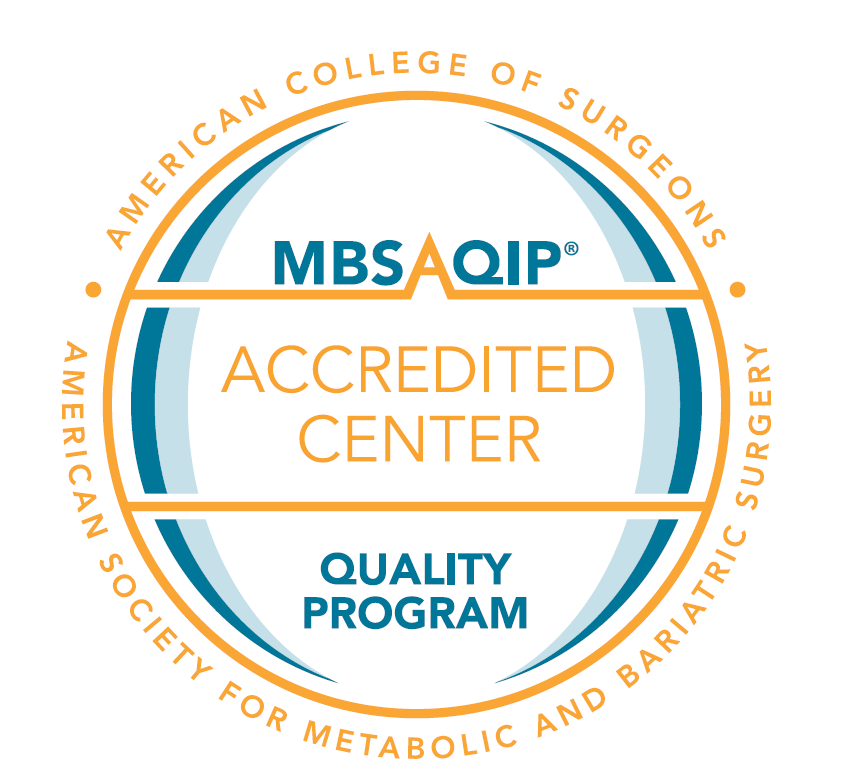Learn about the frequently asked questions for Sleeve Gastrectomy Surgery from the Bariatric Specialists at Northeast Georgia Medical Center.
The Vertical Sleeve Gastrectomy is a type of weight loss surgery in which approximately 80% of the stomach is permanently removed from the body. This procedure limits the amount of food the stomach can hold, therefore the patient feels fuller faster resulting in fewer calories being taken in overall The total amount lost depends on a variety of factors including your how much you have to lose as well as how closely the lifestyle changes are followed after the procedure.
- Patients may experience on average they will lose 65-70% of the excess weight that they are carrying.
- This surgery does not involve re-routing the intestines.
- This surgery is less invasive than the gastric bypass.
Recovery times will vary, but on average our patients:
- are up walking within 2-3 hours of surgery
- leave the hospital the day after surgery
- are back to work in one to two weeks
- are lifting and exercising four weeks after surgery
- Sleeve gastrectomy patients can eat a wide variety of foods, in small portions. A typical meal in a bariatric and metabolic surgery diet includes protein-rich foods such as lean meat, eggs, low-fat dairy products (yogurt and cheese), starches and whole grains, fruits, and vegetables.
- Eating protein helps you feel fuller longer. You’re advised to avoid desserts and other items with sugar listed as one of the first three ingredients. High-sugar, high-fat foods can derail your attempts to lose weight. You’ll also want to avoid raw vegetables, fruits with skin, nuts, popcorn, tough meats, stringy foods, and crusty bread (bagels and pretzels), which may block the opening of your stomach.
Our patients are asked to avoid drinking alcohol for one year after surgery to maximize their weight loss. After one year alcohol can be consumed in moderation. Many patients experience a lower tolerance after bariatric surgery which can lead to feeling the effects of alcohol quickly from a very small amount. Alcohol consumption can also increase overall caloric intake making it more difficult to lose weight.
Directly after gastric surgery, thick foods like bread can be more difficult for the body to digest. Once the body has healed after approximately two months, bread can be introduced in moderation. Bread is a high-carb food that should not be consumed in large amounts to prevent weight gain.
During gastric sleeve surgery, the surgeon permanently cuts away excess stomach tissue. For this reason, it is not reversible. Revisional surgeries can be completed to convert the sleeve to another bariatric procedure, but these are higher risk and typically reserved for patients who did not reach their weight loss goals from the initial sleeve surgery or developed complications requiring a revision.
Yes, patients who have undergone gastric sleeve surgery can still have colonoscopies because their large intestines were not impacted by surgery. However, traditional bowel preparation bariatric patients may not be tolerated well because of the reduced size of the stomach. If you are having a colonoscopy, inform your doctor of your procedure so that alternative methods of bowel preparation can be used.
It is normal for the stomach to stretch and contract. After gastric sleeve surgery, the stomach should still stay relatively small so long as healthy eating habits are being maintained. Twisting of the stomach is a potential complication of gastric sleeve surgery. While it is possible, it is also rare.
Many patients experience improved fertility after bariatric surgery; however, pregnancy is not recommended within the first year to year and a half after gastric sleeve surgery. Not only can it result in complications for the pregnancy, but it can also reverse the weight loss effects.
Most patients lose between 2-4 pounds each week after gastric sleeve surgery. The total amount lost depends on a variety of factors, but primarily depends on your amount of excess weight as well your lifestyle post-surgery.
Begin Your Journey Today
There are three ways to get started:

- Watch our patient education video to learn about the options offered at NGMC.
- Connect with us using our short online form.
- Call 770-219-0446 to speak with a member of our team.



